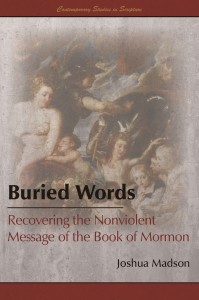
Like many, I hold a deep affinity for B. H. Roberts. A brilliant theologian, Roberts saw critical thinking as a key component in the development of spirituality. It would be hard to overestimate the impact Roberts’ work has had on Mormon intellectualism. And yet, recently, a dear friend reminded me of the following entry from his personal diary. I felt a desire to share it:
“[March 13, 1882] I am twenty-five years old to-day: perhaps one-half of my life has passed away—and what have I done? But little of anything, either good or evil: my misdeeds are like my talents—on the small order. I have made attempts to accomplish something in various directions, but ‘miserable failure’ is written across the face of each of them. . .
“I tried school teaching, but as my education is limited, I can only hope for a middle place in that profession. Two years past I have tried preaching—what I can accomplish in that line nothing but the future will unfold.
“I can but choose to regret the past when looking over it, but as I cannot call it back to amend it, or straighten out the crooks which appear in the path I have trod, I will look to the present and future, trying to profit by the experience of the past: and maybe after all ‘There’s a divinity that shapes our ends, rough-hew them as we may.’”
History’s Apprentice: The Diaries of B.H. Roberts, 1880-1898 (ed. John Sillito; Signature Books: Salt Lake City, 2004), 85-86.
B.H. Roberts was 25 years old when he penned these words lamenting the fact that he had by his own estimate accomplished nothing in his life. What Roberts did not know was that he would go on to become one of the most gifted thinkers Mormonism has ever produced.
Roberts did not shy away from intellectual challenges to his faith; he embraced them, and encouraged his fellow believers to join in his quest to combine spirituality with critical thought. He produced manuals for official Church study that exposed Latter-day Saints to the topics of Hinduism, Buddhism, Islam, and evolution. He composed his first book The Gospel: An Exposition of Its First Principles in 1888, six years after this diary entry. Many other volumes would soon follow, including The Life of John Taylor (1892), Outlines of Ecclesiastical History (1893), The Rise and Fall of Nauvoo (1900), and a three-volume New Witnesses for God (1895-1911). Roberts produced the much acclaimed historical records of Mormonism, the seven-volume History of the Church of Jesus Christ of Latter-day Saints (1902-12) and the six-volume Comprehensive History of the Church of Jesus Christ of Latter-day Saints (1930). His posthumous works, Studies of the Book of Mormon and The Truth, the Way, the Life, show that Roberts was not afraid to address questions that directly challenged his faith.
There is something quite meaningful to glean from this diary entry. When Roberts described himself as a “miserable failure” who had accomplished nothing whatsoever, the journey was not yet over. It had only just begun.











